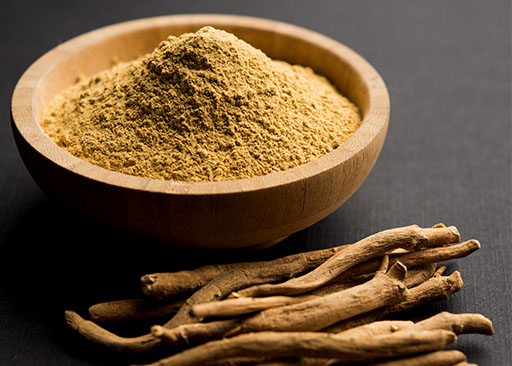The Astonishing Health Benefits Of Ashwagandha Ingredients

What is Ashwagandha?
Ashwagandha is a plant that originated in the Indian subcontinent. Its name comes from the Sanskrit word ashva, meaning “horse,” and gandha, meaning “fragrant herb.” The plant has been used for centuries in traditional medicine as an aphrodisiac. Ashwagandha is a member of the ginger family and grows up to 2 feet tall. The leaves are oval-shaped with serrated edges, and the flowers are small and white.
It is a popular supplement in the United States, and many different products are available on the market. Some of these products contain ashwagandha as an isolated ingredient, while others include it as a blend with other herbs. The most common forms are Ashwagandha powder, capsules, and tablets.
Ashwagandha Root Extract
The ashwagandha (Withania somnifera) is a Leguminosae family member that includes common beans, peas, lentils, and peanuts. Traditional medicine uses the ashwagandha root for its anti-inflammatory properties. It is a natural source of steroidal lactones, including Withanolide and Withaferin A. Withanolide is a natural compound that has been shown to have anti-inflammatory and analgesic effects.
In animal studies, Withanolide was found to reduce inflammation in the spinal cord and paws of rats with arthritis, as well as improve their mobility. Withaferin A is another active compound in ashwagandha that has been shown to have anti-inflammatory properties.
Side Effects
The side effects of ashwagandha can vary depending on body chemistry. Some people may experience mild side effects such as nausea, headaches, diarrhea, nasal congestion, constipation, or dry mouth. Others may have more severe reactions, including drowsiness, difficulty concentrating, vomiting, and heartburn.
There is no known risk with ashwagandha, and there is limited information on the safety of ashwagandha during pregnancy and breastfeeding, so it is essential to consult with a specialist before trying this supplement. Ashwagandha is a supplement used in India for centuries to improve overall health. In addition, ashwagandha is not currently listed as a dangerous substance by the US Food and Drug Administration.
Benefits Of Ashwagandha
Ashwagandha is a herb used for centuries to improve overall health. Ashwagandha is a root extract used in traditional ayurvedic medicine to address stress, anxiety, cortisol levels, testosterone levels, insomnia, and more. It is also being studied for its effects on cognitive health, inflammation, and improving joint health.
It has many potential health benefits, including increasing testosterone levels, reducing anxiety symptoms, and more. Some of the other benefits of ashwagandha that have been shown in clinical studies include reducing inflammation in the spinal cord and paws of rats with arthritis, improving mobility, and increasing testosterone levels.
Weight Loss
There is growing evidence that ashwagandha supports weight loss. In a study, overweight women who took 300 milligrams (mg) of ashwagandha lost more weight and body fat than those who took a placebo. The study also found that ashwagandha increased the burning of calories after eating, suggesting that it may help increase endurance and reduce overall calorie intake, leading to weight loss.
Detoxification
Ashwagandha is a plant-based supplement used in Ayurveda for centuries to help detoxify. Recently, it has been shown to benefit cognitive function and stress relief. Ashwagandha can help reduce inflammation and improve liver function.
It also helps increase energy levels and promote better sleep patterns. Ashwagandha is an excellent choice for people looking to improve their health and detoxify their bodies. It can help reduce stress and inflammation and improve liver function.

Stress
Ashwagandha is an adaptogen that helps the body balance out its energy levels. It can help improve mood and reduce stress symptoms. It may also help to decrease cortisol levels, which can play a role in chronic stress.
Anxiety
One of the main benefits of ashwagandha’s ability to reduce anxiety is partly because ashwagandha has anxiolytic effects, which can help calm and relax a patient. Additionally, ashwagandha also promotes a sense of well-being by helping improve moods and reducing stress levels.
Cognitive Function
Ashwagandha is a herb traditionally used in Ayurveda for its cognitive enhancement properties. In vitro and in vivo studies have shown that it can improve memory and learning and reduce anxiety and stress levels. It is also known to improve cognition by increasing the production of dopamine, a neurotransmitter that is responsible for enhancing mood and motivation.
Arthritis

Conclusion
Ashwagandha is a herb with many health benefits, including reducing anxiety and stress levels, improving sleep quality, and boosting cognitive function. It has been shown to benefit the body and mind and can be used for various reasons – from reducing stress to improving moods and sexual function. Ashwagandha is a plant with a long history in traditional medicine and is helpful for multiple health conditions.
It is an excellent herb for both the body and the mind and is a healthy supplement for anyone looking to improve their overall health and well-being. BioScan is a Galvanic Skin Response device that can be used to identify if there are stressors causing problems with the organs and tissues in the body. This information would then be used to establish a protocol, which may include the use of ashwagandha.
